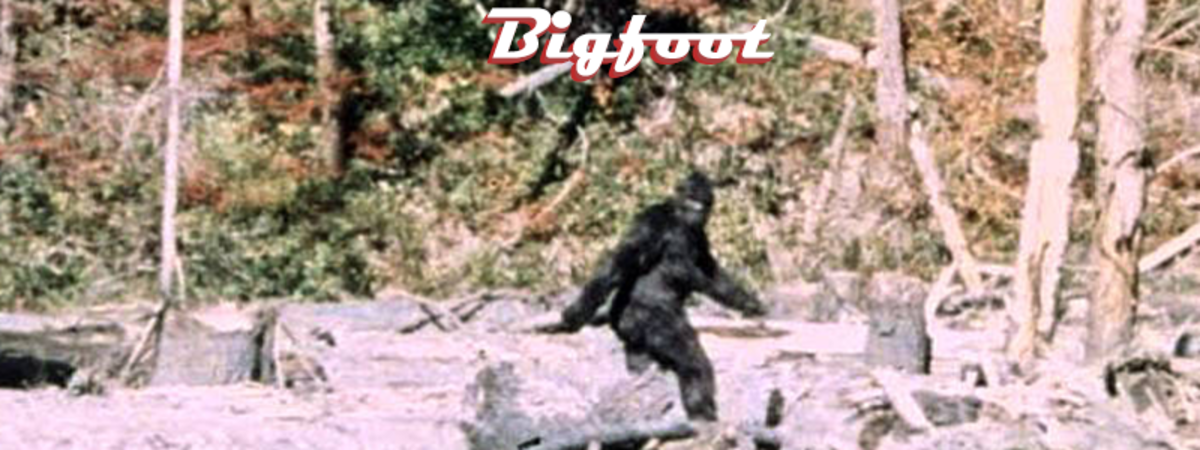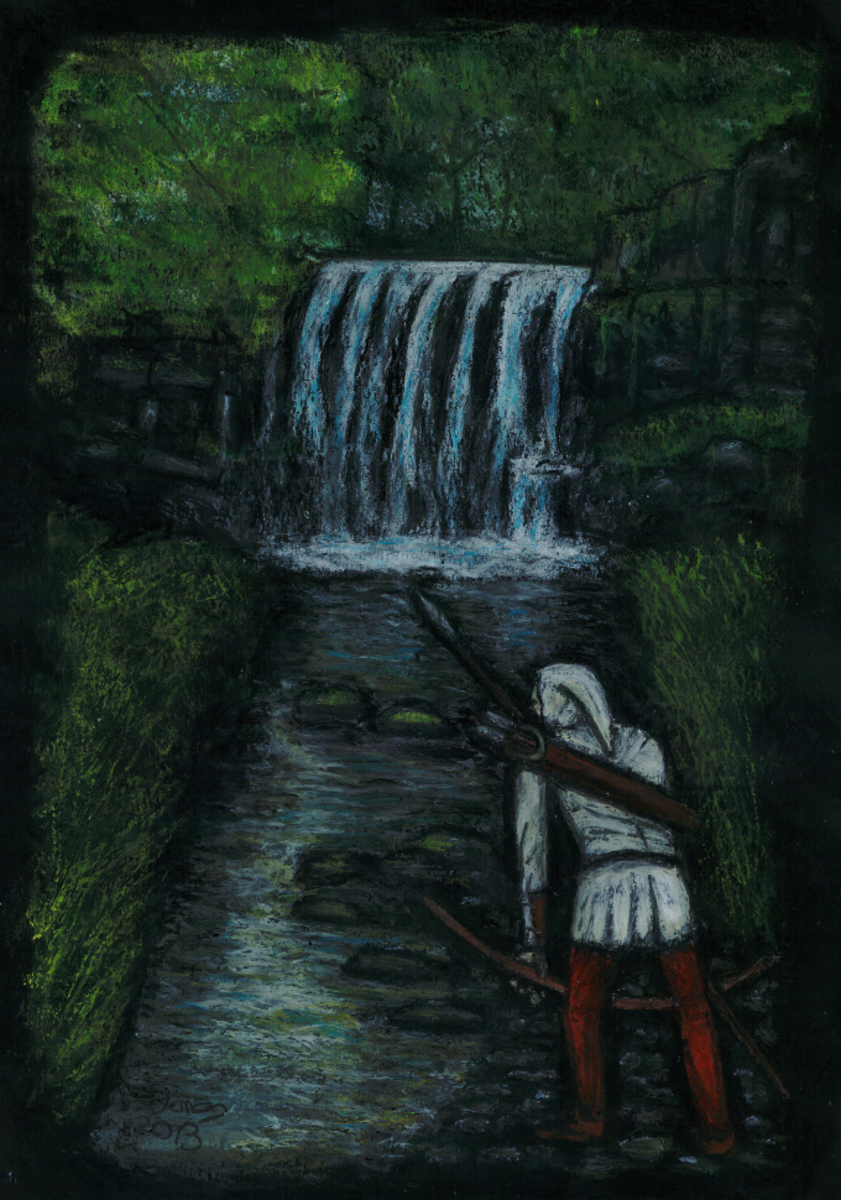Legend and Story Hunting Resources

Basic Searches Online
If you're intereested in finding out about urban legends, mythology and mythic figures, legends and legendary heroes, folk and fairy tales and even supernatural topics, cryptozoology, the paranormal and UFO encounters, you will find a vast array of websites online featuring these subjects and a whole lot more.
Just go to your favourite search engine and type in the subject/terms you want to find out about. Enter your search terms, submit them and prepare to get comfortable at your computer and read your little heart out.
Most people are quite famiiar with how to use search engines to find sites that display information on the subjects they're wanting to read about.
In fact, if you made it to this page, you'll probably find the above sentences very elementary.
What is important about online searching - that many people might not realize is...
When you find information through searches online - chances are that, along with legitimate, 'official,' educational, or otherwise "good" information - the search engines are going to also show you personal websites with BAD INFORMATION on them.
Use searches and search results carefully - that is - don't believe everything you read online just because, say, google or another popular search engine uncovered a link for you and the link was near the top of the search results.
If you end up on a PERSONAL website and you KNOW that you're reading from a personal website and not a site made by a well-known, legitimate organization, school, University or other educational facility, foundation, etc., then please DO REALIZE that the personal website may contain largely one person's biases, opinions and preferences - along with the information you were seeking.
You'll find a whole lot of attractive, valid information pages and sites from plain and simple search engine searches - I'm not saying to AVOID personal websites online at all - just understand fully what you're looking at, and know when to quote a valid source or mention that you read information from a personal website in order to come up with the opinion that you have.
Whenever you're on websites which allow you to publish content, show the links to where you've gotten your information - this, of course, if the publish/content site you're a member of actually allows you to post links that lead away from the site.
I do searches everyday for all my topics - just plain ol' simple google, yahoo and msn searches. If I find that a number of search results all lead mostly to certain sources and websites, then I have an idea of how widespread the information is scattered around the web on the topic I've been searching on.
In the 'urban legend' and 'paranormal' categories, a number of the same sorts of websites turn up in average search results. I've learned to just go to certain websites if I am continuing to search on, say 'urban legends' but am looking for a specific type of legend - or if I am planning on comparing several versions of urban legends, etc. There are a lot of sites out there which have collections of articles in good supply. About the only way to learn about some of the good sites is to go ahead and use regular search engines and then visit article-collection sites with a critical eye, learning which sites have well-written articles, links out to other legitimate sources, etc.
Basically, I use search engines mostly as a way to 'scan' what's currently out there online concerning the topics I'm interested in. Almost all my searches have to be fine-tuned and narrowed down once I leave the search page, but I find that 'googling' subject keywords is always a good start when I first sit down at my computer.
Sites With Info-collections or Article Collections
There are a whole lot of reasonable sites online with information on them about the kinds of topics listed on this hub. If you find that you start to enjoy reading from a certain site and find the information on it to be of some quality, try looking around the site for a newsletter, email list or things of this sort.
You may be able to put yourself on a mailing list that sends out first-rate, timely information related to the topics you enjoy.
Now, I know, I know - most people are sick and tired of newsletters, email lists, subscriptions, and things - but hey - if a certain newsletter sends you their latest information and it is GOOD information - wouldn't you rather be informed than not? You can create filters in your email account to handle incoming mail...if you're really or are really becoming an avid urban legend hunter, trust me - you'll soon appreciate being able to receive timely tid-bits in your email about what kinds of new legend versions are showing up or how scientific research is turning up more information on cryptozoological finds, etc.
Also - if you and up really enjoying a certain website that has good information on it, look around the mainpage to find the website owner's email address. Drop him/her/the organization a line and tell about how much you're liking the website. Sometimes you'll end up with an excellent contact person who is 'in the know' about the matters you are also researching. Most people react very positively about discussing whatever field of study/work they are in when strangers approach/email/call who are obviously sincere about their interest in a certain kind of study/work/field.
Find out if the site you like displays articles by only member-authors or whether the site accepts all sorts of article submissions from all over the world...this might tell you something about the quality of information you might discover on the website. If a site accepts articles from all over the place, this can be good or bad...depending on the site, topics, etc.
For instance, a site displaying work from almost anyone who submits articles may be trying to mainly show online presence by establishing a HUGE collection of pages and articles. A site like this may be trying really hard to earn money by displaying various advertising methods and tactics on-site - which might be why they accept tons of submissions from all over the place...to add pages and thus - add revenue through having more advertising on more pages.
On the other hand - a site accepting articles from all over the place may also be trying to diversify in relation to content on-site. That is - they may be really in the business of providing the best articles and information as is possible...and in broadcasting that they accept content on an international scale, they may hope that little-known but brilliant and talented authors end up on-site to publish cutting-edge information!
There are a lot of things to think about when browsing online...you'll get to know what you're doing in no time if you join a few newsletters (and actually READ THEM thoroughly) from some top rated sites
--by 'top rated' - try not to ONLY consider 'popularity' of a site when deciding if it is a quality website...be sure to find out if the website in question has been 'reviewed' at several other places online. Check to see what other readers/viewers have to say about the site.
Loren Coleman Books
Look For "Name-Dropping" and Duplicate Content - and Be Wary of the Latter
When you read articles, be sure to take special note of name-dropping that occurs in articles, and when the name of a prominent academic or scholarly person is mentioned in a series of articles, do a search on that person.
For instance, if you are checking around for information on the creature known as the "Dover Demon," you'll find a number of webpages online that say almost exactly the same things about this creature and reported sightings of the Dover Demon.
In fact, because I have researched the Dover Demon, myself, I have found straight out copy and pasting all over the net about this creature.
Duplicate articles do not always mean that there is limited information out there about the Dover Demon. It often means that, in general, people have been limited in what they publish online about Dover Demon - or that people who post articles about Dover Demon are not delving very far into research, themselves...so this is where you start checking for prominent names.
Loren Coleman is mentioned in copy and pasted articles all over the place where Dover Demon is mentioned...so if you want more than just the basic information you're seeing in duplicate, triplicate, quadruplicate, etc., you will be able to find information if you check on Loren Coleman sites and articles.
Loren Coleman is one of the foremost experts in cryptozoology who has actually done quite a methidocal investigation into the reports of the Dover Demon, along with academic/scientific peers who will be mentioned in several Loren Coleman articles. Mr. Coleman has published his own analysis concerning how details of eyewitness accounts matched up or didn't match up, his opinion of the characters of the individuals who were eyewitnesses to appearances of Dover Demon in their community several decades ago...
The details that Loren Coleman has published rarely appear on general Dover Demon articles online, either because people who published Dover Demon stories online were not interested in doing further research or they, perhaps, thought that encountering the same article over and over again meant there was no additional information to be found about Dover Demon.
Obviously, you may turn from online sources and on to hardcopy books in order to get more information - which is actually the stage of research I am in concerning the Dover Demon hub I have published at Hubpages. Now, even when I am in the library, checking out physical hard-copy books, I still double check details, cross reference facts and check for name-dropping of author and researcher, interviewer and interviewee names as I go along. Sometimes a lot of details are wrapped up in someone else's research so that I won't have to end up doing as much research as I think...
Specialty "Urban Legend/Folklore" Sites
One of the most well-known and popular sites online which deals with Urban Legends is snopes .com. This site has a special section that many people overlook. It's called the "Glurge Gallery." The Snopes .com Glurge Gallery is one of the first places I send my real life peers who ask about my Hubpages persona, Mythbuster, and who ask about my urban legend research. I send people to the glurge gallery FIRST because this is a good place for people to learn about how easily people can be drawn into believing that stories are true just because they sound possible.
The glurge gallery is a deliberate attempt by the Snopes crew to produce urban legends and see how many people respond to these glurge stories. Usually the job of the Snopes crew is to report on urban legends and sort fact and fiction out of the many versions of urban legend that people send to the snopes site. Many people spread the glurge gallery stories in the same way as urban legends, but glurge gallery stories have been recently invented, not circulated for decades as most typical, good urban legends have circulated.
The Snopes website is not exclusively about the technical format of 'urban legends' and you will find pseudo-legends, rumours, "strange news" items, celebrity gossip and other sorts of stories on the site, as well. Still, the site holds information about many of the top Urban Legend classics ("The Hook," "Humans Lick, Too," "The Dead Boyfriend," etc), popular ghost stories, and more.
Urban Legends contain a certain inherent 'formula' which becomes a sort of 'rhythm' that we feel both when we tell and when we listen to an urban legend story...instinctively, listeners and tellers of urban legends recognize this rhythm the more we tell and listen to the stories. Urban Legends are about language, oral tradition, keywords, stereotypes, roles and mass recognition of role types, object symbolism and things of this nature. Therefore, to learn more about urban legends is to actual involve yourself in them, immerse yourself in the telling of, reading of, hearing of them, and expose yourself to the many symbolic objects and phrases that are embedded within them. This is why I have pointed you to the Snopes site even thought this website is about much more than Urban Legends. Rumours are connected to oral delivery of tales, which makes them also connected to urban legends. Strange News is connected with either the 'funny' or the 'horror' of urban legends and also, sometimes, to the oral transmittion that is similar in urban legends. Celebrity gossip lends itself to the format of urban legends, so overall, the Snopes website is a site that MUST BE SEEN for newcomers wanting to know more about Urban Legends.
The AFU & Urban Legends Archive is also a great urban legend research resource. The format of this site is not as fancy as Snopes, and the AFU and UL Archive doesn't treat each individual legend as thoroughly as Snopes does, for the most part, but if you need a site for cross-referencing and quick bits and bytes and facts, this is another link that will come in handy for you.
* Note - the sites I'm directing you to are definitely beginner level sites. If you require in-depth research tools, you're going to have to hit hard-copy resources, read some books by Jack Zipes (topics like memes, fairy tales, regional context, character archetypes, roles, historical context, psychology, fear, societal norms, etc), read some different types of folklore books, fairy tales (study the works of the late Angela Carter, who was a fantastic deconstructionist, and wrote modernized versions of Little Red Riding Hood and other popular tales), and learn 'folk and fairy tale typing' (classifying)...for best effect and understanding.
There are a number of other sites that deal with urban legends, the supernatural and ghost stories but many have the dreaded copy and pasted content...you'll find same-content on most sites which deal only in the 'classic' urban legends, but the sites are still worth a visit so that you can read and become very familiar with the classics. Regardless, I still use the same sites over and over again to refresh my own mind on the details of the classic urban legend sets...sites such as:
Urban Legends and Superstitions , Halloween Ghost Stories - Urban Legends page , American Folklore - Urban Legends page , Urban Legends Electronic Art Exhibit (this site, not for the faint-of-hear - very graphic images!), Project 2067 - Urban Legends , About .com Urban Legends Section
The above sites are just a few that I like. About .com and the Urban Legends and Superstitions sites are my favourites of the above links. As with all online content, take some of what you see and read as tongue-in-cheek, unless you have been able to do enough research to satisfy your understanding between real and myth, truth and socially constructed beliefs.




